How a Former Ku Klux Klan Auditorium is Being Transformed Into a Cultural Hub for Healing in Texas
Carlos Gonzalez-Jaime on Transform 1012's Ambitious Mission and Where It Stands Today
BY Dani Grande // 04.12.23Carlos Gonzalez-Jaime, the inaugural executive director of Transform 1012 N. Main Street (Photo by Jacob Carroll)
A Fort Worth site that once evoked feelings of grief, inaction, and fear will soon signify rebirth, mobilization, and safety. At the helm is the nonprofit organization Transform 1012 N. Main Street and its inaugural executive director, Carlos Gonzalez-Jaime. Read on for PaperCity’s exclusive Q&A with Gonzalez-Jaime.
As statues tumble, songs get canceled, and books are banned from school libraries, the question of memory’s role in history repeating itself cannot be ignored. How should we talk about beastly instances of social injustice? How do we heal from our past? How must we prevent reoccurrence? A Texas-based coalition of nine local arts, grassroots, and service organizations believes transformation holds power over obliteration.
Like most Southern cities, Fort Worth’s past is riddled with racism and violence. A former Ku Klux Klan auditorium, built in 1924, still stands only a mile away from the site where Fred Rouse, a Black butcher, was lynched by a white mob a century ago. But rather than demolish the auditorium and erase its significance, the nonprofit coalition Transform 1012 N. Main Street is repurposing the structure’s 73,000-square-foot space for good, while honoring Rouse’s memory in the process. Currently in the midst of a capital campaign and preparing a design plan, Transform 1012 aims to open The Fred Rouse Center for Arts and Community Healing — the building’s new moniker — in 2025. As a cultural center, it will welcome the groups once targeted by its former inhabitants to educate, create, and find a path toward collective reparation.
Shouldering the weighty responsibility — with its nine coalition groups and 15 current board members, alongside community engagement — is executive director Carlos Gonzalez-Jaime, who joined Transform 1012 last September, leading day-to-day operations. (Gonzalez-Jaime is one half of a Texas power couple; his husband is Dr. Agustín Arteaga, director of the Dallas Museum of Art). Gonzalez-Jaime reflects upon the project’s mission and where it stands.
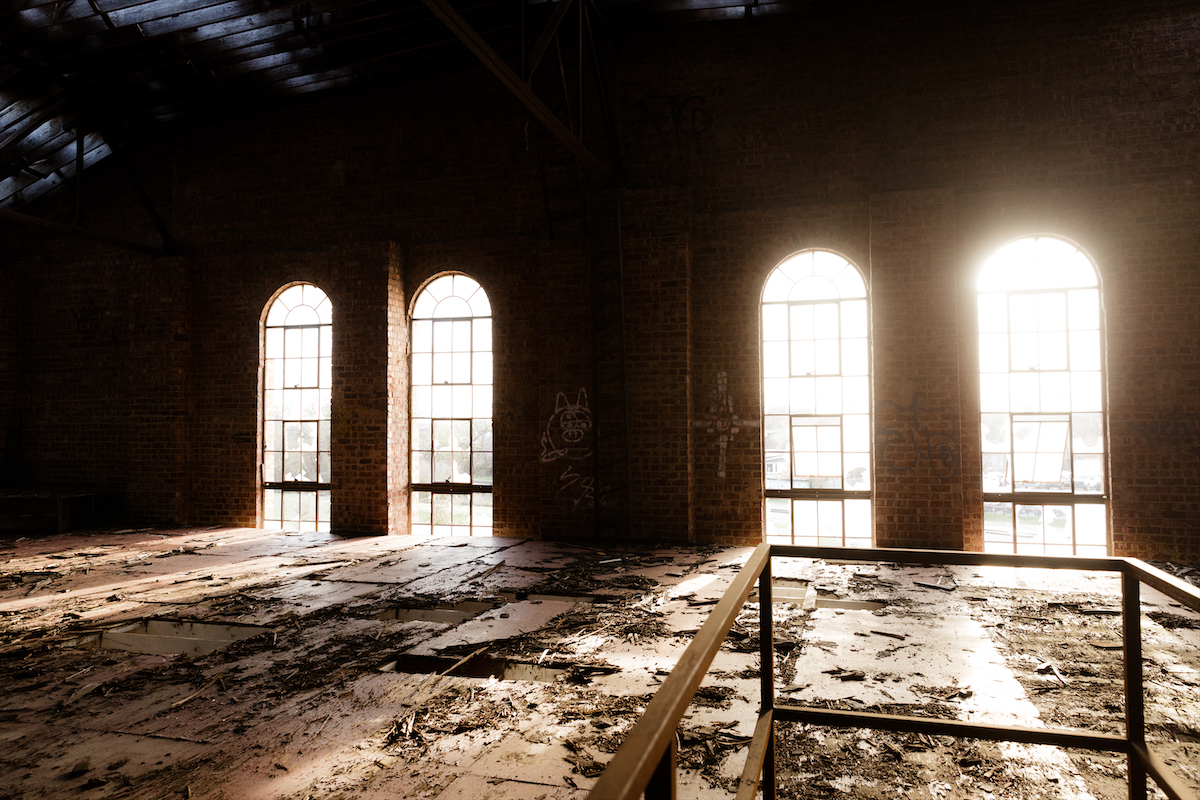
Dani Grande: 1012 N. Main Street was originally built as a symbol of white supremacy — a former Ku Klux Klan auditorium — and has been a triggering site for many locals. In 2019, the owners at the time applied for a Certificate of Appropriateness to demolish the building. The City of Fort Worth Historic and Cultural Landmarks Commission imposed a six-month delay of demolition because of its historic status. But DNAWORKS, one of the nine organizations that form the coalition, intervened and proposed this new plan. Why do you think it’s important to keep the building standing, rather than destroy the dark memory?
Carlos Gonzalez-Jaime: I would like to clarify that although the former owner applied for a Certificate of Appropriateness to demolish the building, it was unclear if they ever intended to do that. In our research — we held thousands of conversations with community members — we found that many Fort Worth residents were unaware of the building’s origins before Transform 1012 N. Main Street was organized and formed. It was important to us to repurpose the building instead of demolishing it, to acknowledge its role in racism, racial terror, and violence, and use it as a precaution for the future.
Through that, we believe our work of radically transforming this building into a center for arts and community healing embodies reparative justice and catalyzes a much-needed dialogue about equity, social justice, and belonging — something that is needed both locally and nationally. Keeping the building is an opportunity to learn from that dark past and to promote public involvement and positive action to secure a better and brighter future for everybody.
DG: The name The Fred Rouse Center for Arts and Community Healing carries a significant piece of Fort Worth history and promises a journey to reparation. As part of that journey, will The Center include information/lessons/tours about Fort Worth’s ugly past, like the lynching of Mr. Rouse, or will it predominantly focus on progressive movements?
CGJ: The Center places an emphasis on strengthening the educational components available to the public, such as featuring the history of the building and race relations in the region, including the story of Mr. Fred Rouse. The Center will house programs focused on truth-telling and reparative justice, storytelling and personal and community response, and economic development to support under-resourced communities.
As a cultural hub, The Center will house an exhibition space; a medium-sized state-of-the-art theater and rehearsal rooms; and meeting rooms for smaller nonprofit organizations and community groups, along with additional spaces that nourish social connection and creativity. The Center’s premises will also include artist and entrepreneur residencies, an urban agriculture and artisans market, and programming to facilitate engagement, dialogue, and community-building.
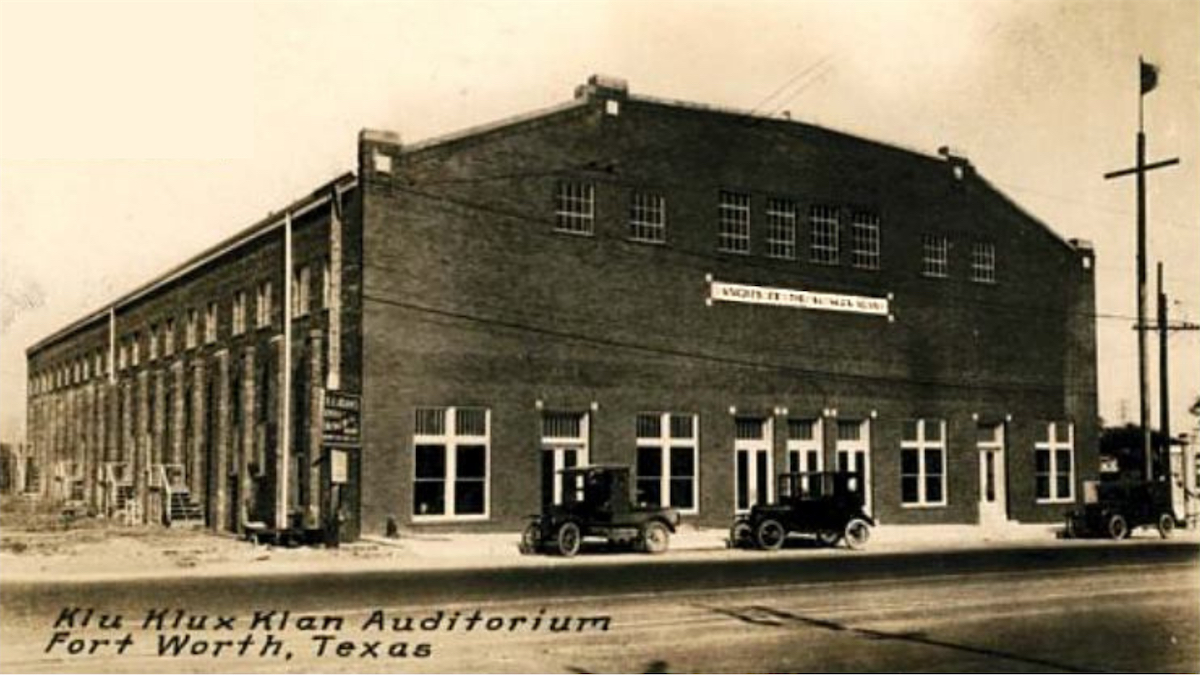
DG: How do you expect the new 1012 N. Main Street building to coexist with Fort Worth and its residents? What do you hope it will become for the city?
CGJ: This building was built as a spatial manifestation of a national legacy of violence and racial terror. As the United States moves towards dismantling systems of oppression, this project is an opportunity to declare collective agency in designing a just future for all. The building will be led and programmed by people that represent and/or serve the cultural groups that were targeted for violence and economic marginalization by the KKK, thereby returning resources to these communities.
Art is a catalyst for positive transformation and development. In addition to nurturing social connections and healing, our cultural hub will play an integral role in contributing positively to the local economy of Fort Worth. An initial economic impact study projects that during the first 10 years, The Center will potentially provide a significant amount of direct and indirect jobs and salaries as well as taxable sales and purchases.
DG: This project has been five years in the making — since DNAWORKS’ ideation in 2018 — but you joined as executive director last year. What drew you to it in the first place, and how do you think your previous work experience will help further its vision?
CGJ: The project captured my heart — I immediately felt its potential and power. Transforming a space once intended to cause terror into a site of healing is a unique opportunity, and it resonated and inspired me to get involved. I have a background in business development and international management, but I’ve always been involved with the arts — it’s one of my passions. During the last 10 years, I have been fortunate to have the opportunity to work with nonprofit and cultural organizations at the intersection of arts, culture, and social impact in Mexico (the country where I was born), Puerto Rico, and in the DFW metroplex. My expertise in leading fundraising campaigns, strengthening organizational structures, and fostering community involvement will help me to shape this organization and ensure that Transform 1012 and The Fred Rouse Center thrive.
DG: Transform 1012 N. Main Street is led by a coalition of nine groups: DNAWORKS, LGBTQ SAVES, Opal Lee Foundation, SOL Ballet Folklórico, Tarrant County Coalition for Peace and Justice, The Fred Rouse Foundation, The Welman Project, Window to Your World, and the 1012 Youth Council. As the executive director, how do you account for the various missions of each group and ensure that all voices are represented in a balanced and thorough manner?
CGJ: It is imperative that the missions and perspectives of each contributing organization are equally recognized and considered. It is not such a big challenge since the coalition has been working collaboratively for three years. By having a building that hosts multiple cultural organizations, we’re creating a richer ecosystem that educates, interacts with, and welcomes many groups. Our work together is guided by a pluricultural and shared leadership approach where acquiring, programming, and managing The Center are collectively led by the groups targeted by the KKK.
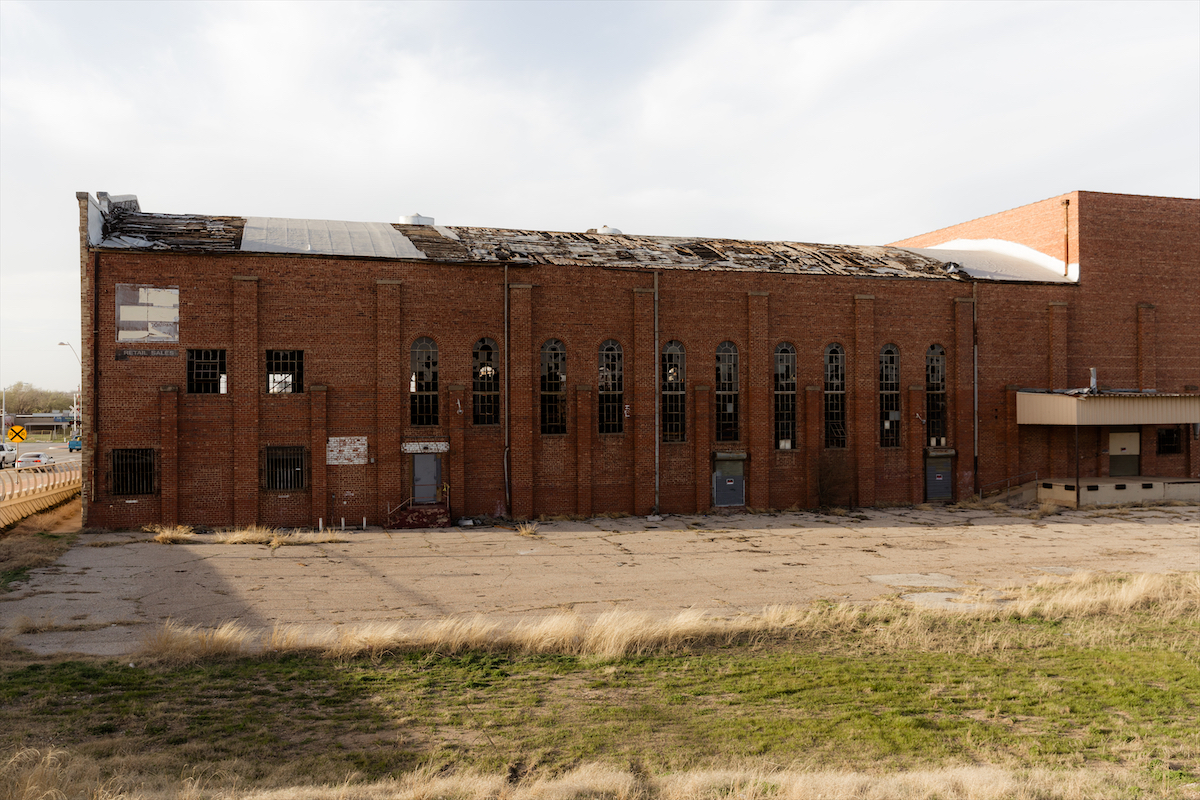
DG: Can you give a few concrete ways that the space will be used?
CGJ: We envision a space that strongly emphasizes community building and public accessibility. For example, SOL Ballet Folklórico will use the stage for performances and the dance studio as a rehearsal room to provide arts training for underserved youth and early-career performing artists; DNAWORKS will facilitate community convenings through performances and community story circles; and LGBTQ SAVES will utilize the spaces for social and personal development of LGBTQ youth through programming and virtual counseling. Tarrant County Coalition for Peace and Justice will host educational opportunities focused on truth-telling and restorative justice; The Welman Project will open a community tool library and maker space; Window to Your World will further its program design and implementation, community outreach, group facilitation for nonprofit organizations, and capacity building for youth; The 1012 Youth Council will center the imaginations and stories of Fort Worth’s youth through educational and sustained action initiatives; and the Opal Lee and Fred Rouse Foundations will have office space and educational space to honor the histories of Juneteenth and the lynching of Mr. Fred Rouse.
While the space is primarily for local communities and will be rooted with organizations that already hold a strong place in Fort Worth, we want this space to be a cultural hub for both local communities and tourists who want to engage with the space, its history, and its transformation. Organizations have already inquired about renting the space for national gatherings.
Learn more about Transform 1012 N. Main Street here.



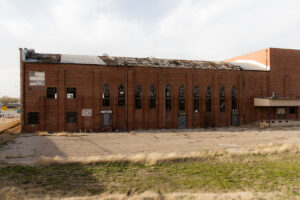

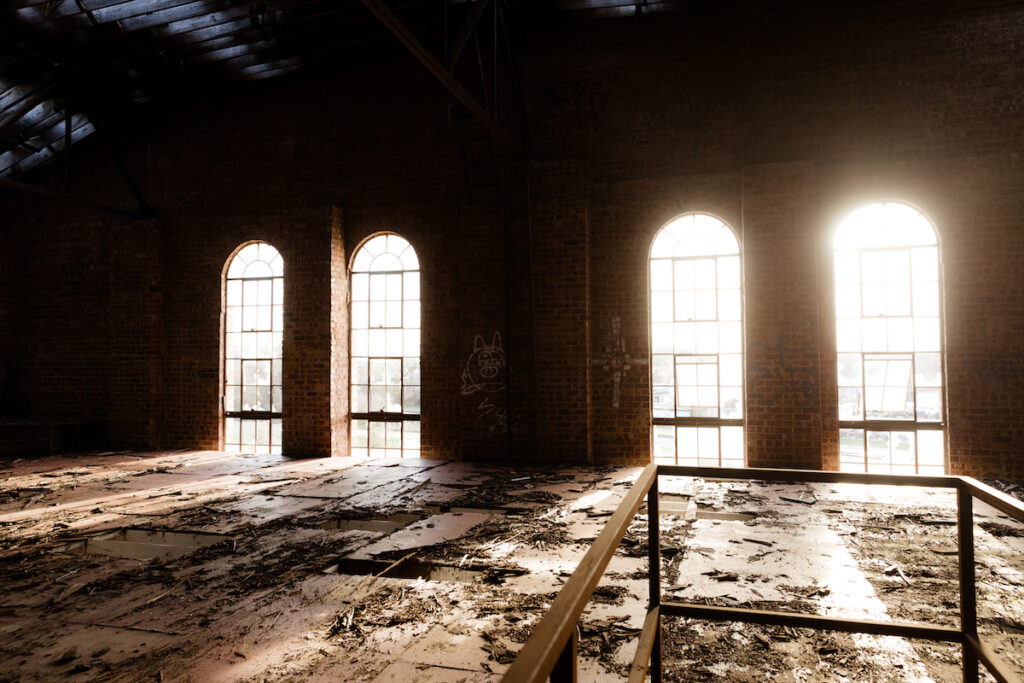



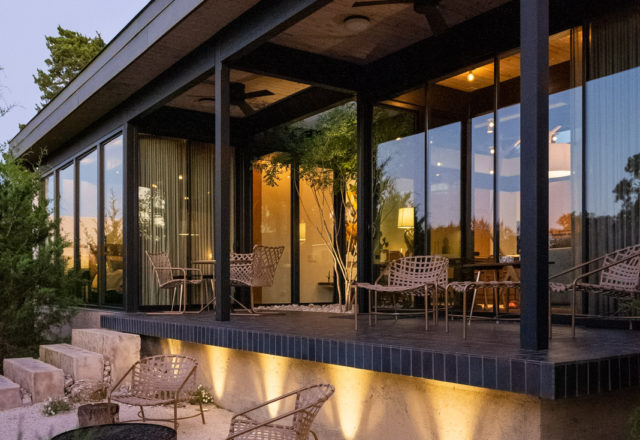







_md.jpeg)


